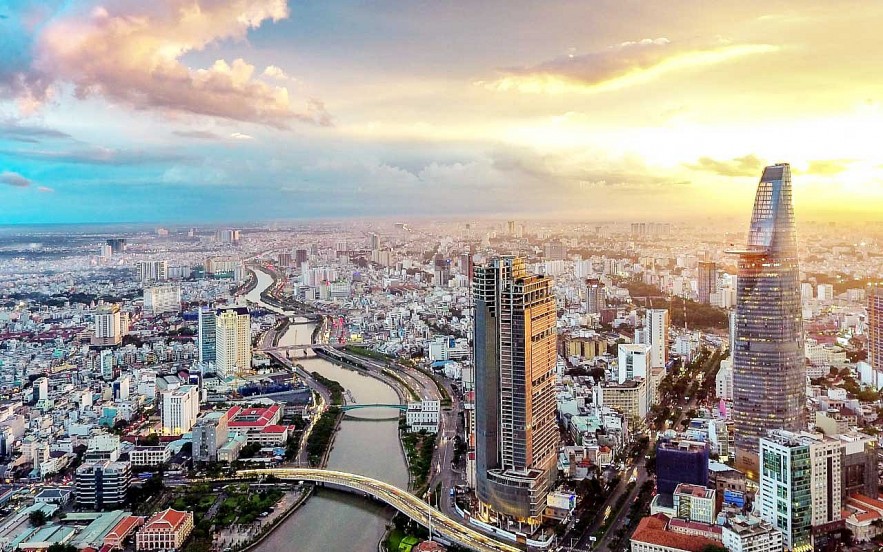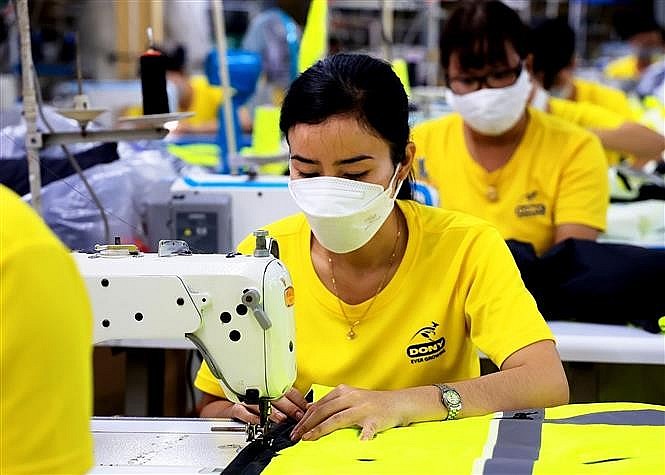 |
| . Rating agencies and the World Bank also forecast Vietnam’s growth at 6.5-7% this year and coming years. Photo: Business Forum |
According to Russia’s Sputnik radio, Mazyrin described GDP growth as the most outstanding success of Vietnam. Rating agencies and the World Bank also forecast Vietnam’s growth at 6.5-7% this year and coming years.
In his view, 4-5% growth is also a great success of Vietnam as many countries posted negative growth amid Covid-19.
Given that industrial production growth stood at roughly 9% in 11 months of this year, he said industry remains a major industry of the Vietnamese economy and Vietnam has made progress in its goal of becoming a manufacturing workshop of the world.
During the period, foreign direct investment in Vietnam reached $25 billion, lower than 5% recorded in the same period last year. However, he still believed that the figure is high.
He noted that capital absorption rate in Vietnam improved markedly, which rose by 15% to some $20 billion.
The scholar forecast that later this year, Vietnam’s trade value will reach up to $800 billion, according to VietnamPlus.
Factors for Vietnam’s sustainable economic growth
 |
| One of Vietnam’s biggest advantages is its competitive labour costs. Photo: VNA |
Infrastructure investment, trade environment and competitive labour costs are the three factors that keep Vietnam’s economy humming along and its growth numbers positive, an article published on vietnam-briefing.com pointed out.
Specifically, the website wrote that Vietnam has spent around 6% of its gross domestic product (GDP) on infrastructure, which is among the highest in the Association of Southeast Asian Nations (ASEAN).
Another factor is that Vietnam is an active participant in global trade. Over the past few years, Vietnam has been active in signing bilateral trade agreements with countries around the world. Its membership in ASEAN also makes it a party to several free trade agreements (FTAs) that the regional bloc has inked.
The standard of product quality, manufacturing, and employee rights guaranteed in these agreements will allow Vietnam to become a manufacturing hub and expand its export base.
One of Vietnam’s biggest advantages is its competitive labour costs, wrote the article. The country has a young, dynamic workforce that is ready to fill the gap. Its young labour force also comes at a relatively lower cost. More than 40% of Vietnamese university graduates major in science and engineering. As Vietnam sees its economy grow, its wages will rise. It will thus have to maintain a balance between inflation, wage levels, and productivity to avoid disrupting the overall labour market.
In conclusion, the article wrote that even as geopolitical tensions persist, Vietnam’s economic prospects are promising. In the short term, costs are likely to increase, but investors that play the long game stand to reap big rewards./.
 |
| The WB attributed the rebound to a recovery of exports and the release of pent-up demand following the removal of Covid-19-related restrictions and, more recently, the gradual return of foreign tourists. Photo: VnEconomy |
|
Earlier, the World Bank (WB) forecast Vietnam’s economy to grow by 7.2% in 2022, the highest growth rate among East Asian and Pacific economies. According to the East Asia and the Pacific (EAP) Economic Update October 2022, released on September 27, WB experts said the growth will be supported by a strong recovery in domestic demand and continued solid performance by export-oriented manufacturing. However, it would revert to standard rates over the medium term, with 6.7% for 2023 and 6.5% for 2024. The economy rebounded strongly from Covid-19-related lockdowns in the third quarter of 2021, expanding by 6.4% in the first half of 2022, the report said. The WB attributed the rebound to a recovery of exports and the release of pent-up demand following the removal of Covid-19-related restrictions and, more recently, the gradual return of foreign tourists. |
Vietnam attracts 12.33 billion USD in FDI in four months
Vietnam attracted 12.33 billion USD in foreign direct investment (FDI) in the first four months of 2020, a year-on-year decrease of 15.5 percent due to the impact of the COVID-19 pandemic, according the Ministry of Planning and Investment’s Foreign Investment Agency.








